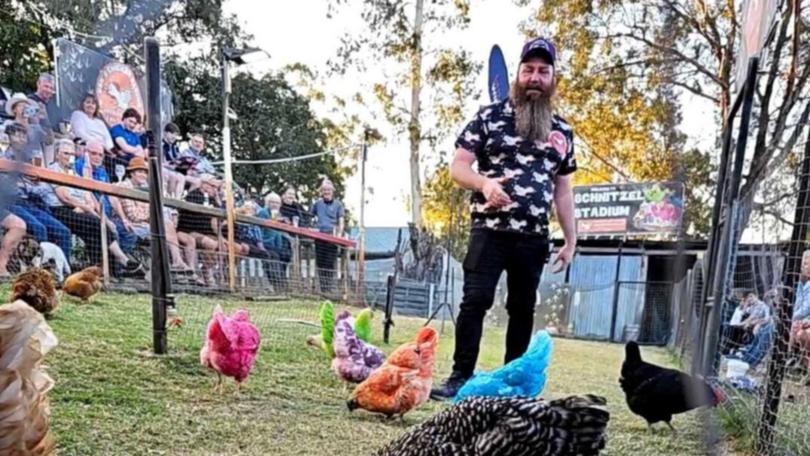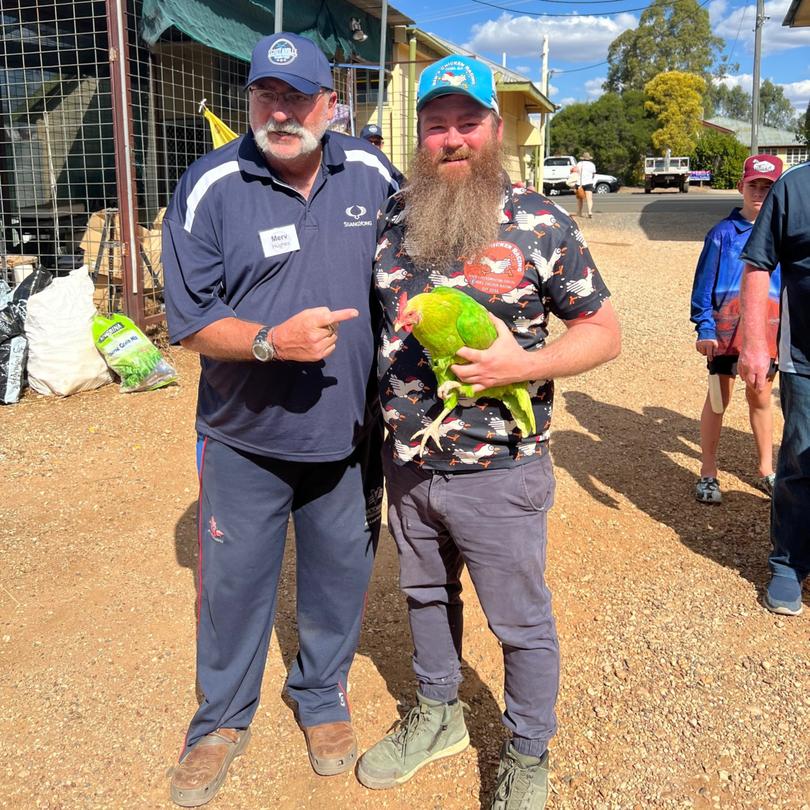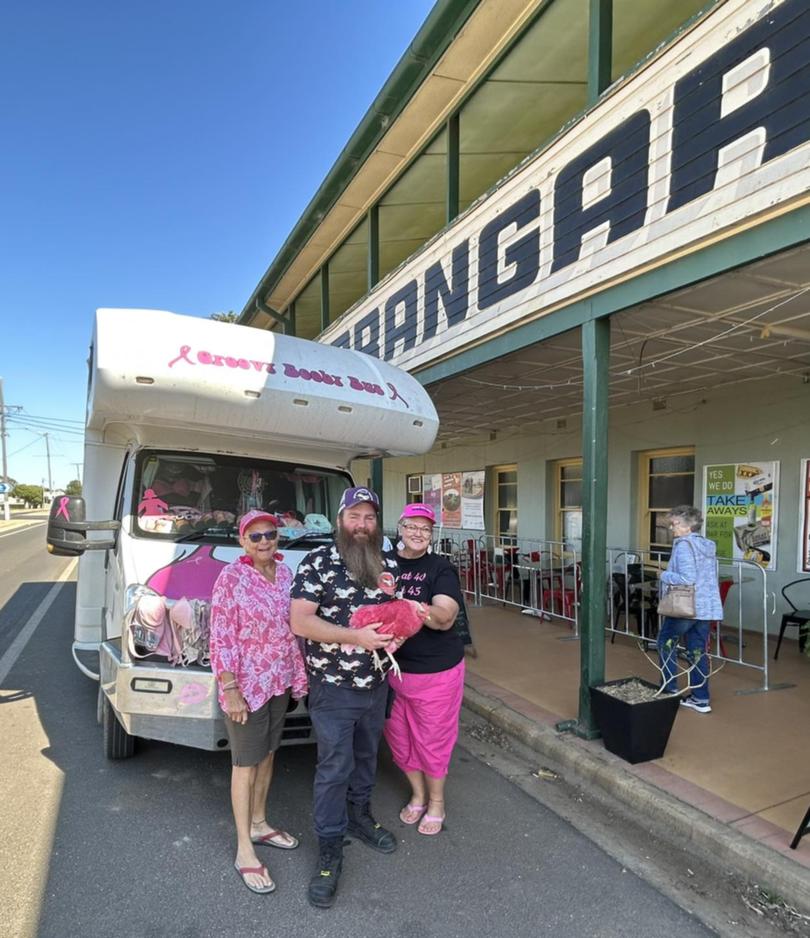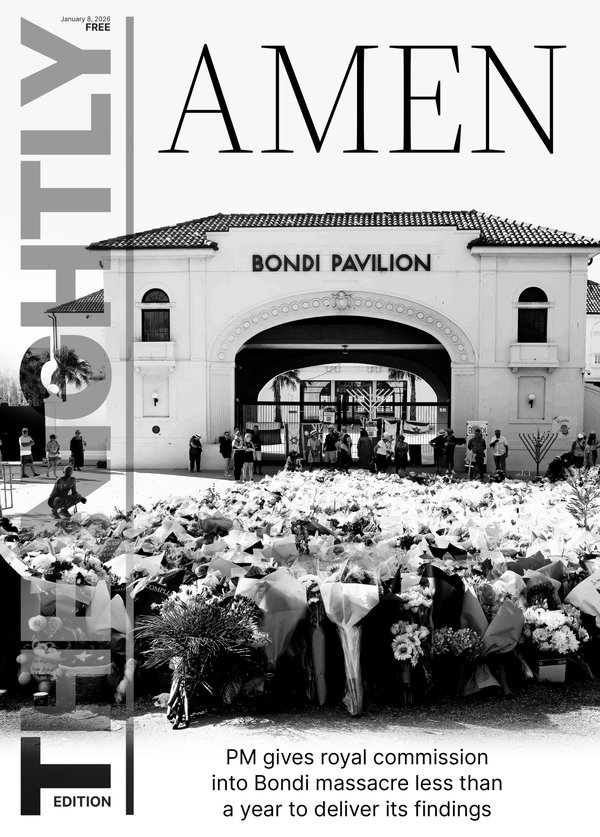Chicken racing takes off in Queensland town of Tambo

Ben Casey was enjoying a beer one night with mates at a pub in southeast Queensland when he cracked a good joke: He was going to race chickens.
Fast forward nearly nine years and Ben’s Chicken Racing is booming, drawing tens of thousands punters and grey nomads to the Royal Carrangarra Hotel in Tambo, about 600km west of Rockhampton, every year.
Mr Casey said he got the idea after watching online videos of people racing turkeys in the USA.
Sign up to The Nightly's newsletters.
Get the first look at the digital newspaper, curated daily stories and breaking headlines delivered to your inbox.
By continuing you agree to our Terms and Privacy Policy.“Turkeys are a bigger animal and a lot harder to deal with,” he told The Nightly.
“My chickens got out one day… Over a beer that night, I said, jokingly, ‘I am training them up for chicken racing’.”
Mr Casey races chickens seven nights a week between April and the end of October and he uses specially ordered dye from Queens — who make baking ingredients like vanilla essence and food dye — that was recommended by a vet.
Vision posted to social media shows pink, blue and green chickens chasing a remote-controlled car.
Mr Casey said he dyed the chickens different colors in part to enhance the spectacle of the race but also to help punters differentiate between the birds.
The pub owner said he trained the chickens using food and during races attached a bucket full of treats like beef mince, worms and apple cider vinegar-soaked grains.
“The training is basically just doing the same thing over and over,” he said.
“Chickens love consistency. They get up at the same time, they lay at the same time. It’s just finding their favourite tucker.”

How the racing works is that punters pick between one of nine chickens with a total of 10 birds in each race that lasts about two minutes, with the bets going for about $15.
Mr Casey said the 10th bird was like a “lucky door prize” and the winning prize pool was split between the victorious punter and Little Windmills, a charity that supports seriously sick, injured and disadvantaged kids.
The amount that can be won varies from $100 to a thousand dollars. Mr Casey said the race lasts between one to two minutes but the whole show runs for about 50 minutes.
“Lots of really bad dad jokes,” he said.
“I introduce the chickens, they’ve got names and personalities.”
“I give them a quick speech on how and why I do it, explain a bit about the charity and then they race and people get photos of them and it’s a good time. It’s so bad it’s good.”
Mr Casey said between 15,000 and 20,000 people watched the chicken races each year.


